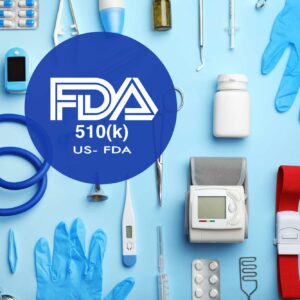Cosmetics, also commonly known as personal care products that are intended to cleanse or beautify the appearance, have been part of a long-standing self-regulated industry for nearly a century. FDA’s authority to regulate cosmetics was established by the Federal Food, Drug & Cosmetic Act (FDCA) in 1938, but the agency’s regulatory authority has been limited to adulterated or misbranded products. Over the years, there has been a tug and pull over whether FDA’s regulatory scheme over cosmetics is enough. With FDA’s principal authority to monitor the cosmetics industry through random inspections, checks at ports of entry, and investigation of consumer or competitor complaints about specific products, some have lamented that cosmetics have effectively no regulation.
Cosmetics deemed “consumer commodities” later became subject to labeling regulation under the Fair Packaging and Labeling Act. But apart from color additives, which require FDA approval, cosmetics can primarily be sold based on manufacturers’ safety claims without any government sign-off. And the added challenge is that even if FDA had stronger regulatory authority over the cosmetic industry, it lacks the resources to inspect the millions of cosmetic shipments imported into the U.S. each year. This gap makes it easier for foreign companies to sell products.
Efforts to update safety standards for cosmetics has been ongoing since 2013, with the proposed Personal Care Products Safety Act of 2021. And earlier this summer, the Senate HELP Committee voted to pass the FDA Safety and Landmark Advancements (FDASLA) Act (S.4348). While FDASLA focuses on user fees and other provisions for drugs and devices, it also includes provisions related to cosmetics, namely the Modernization of Cosmetics Regulation Act of 2022, which proposes significant amendments to the FDC Act that is intended to modernize U.S. cosmetic safety standards. And although the bill includes certain exemptions for small businesses, key updates which will significantly alter cosmetic compliance requirements in the U.S., include the following:
- Adverse Event Reporting: the responsible person (the person or business identified on the label) is required to submit reports to the FDA for serious adverse events concerning a cosmetic product.
- Good Manufacturing Practices: FDA is tasked to establish Good Manufacturing Practice regulations for cosmetics. The agency has two years to finalize regulations. Small businesses would be exempt.
- Facility Registration: cosmetic manufacturers would be required to register with the FDA. Small businesses would be exempt.
- Product Registration: all cosmetic products would be required to register with the FDA
- Cosmetics for professional use would be required to bear ingredient labeling (these products are currently exempt from ingredient labeling requirements)
- Labels would need a to include full contact information through which the responsible person could receive an adverse event.
- Fragrance allergens would need to be identified on the label (to be determined by FDA)
- Records Inspections: FDA would have authority to access and copy certain records related to cosmetic products during an inspection or on request. FDA can ask to see records currently, but can’t require that they be made available.
- Mandatory recall authority: if FDA determines there is a reasonable probability that the product could cause serious adverse health consequences, FDA would have the authority to order a recall.
- Preemption: state law requirements that are different from, or in addition to, requirements relating to registration and product listing, GMPs, recordkeeping, recalls, adverse event reporting and safety substantiation would be preempted, notwithstanding prohibitions and limitations on the use of or amount of an ingredient in a cosmetic product such as laws governing Proposition 65.


